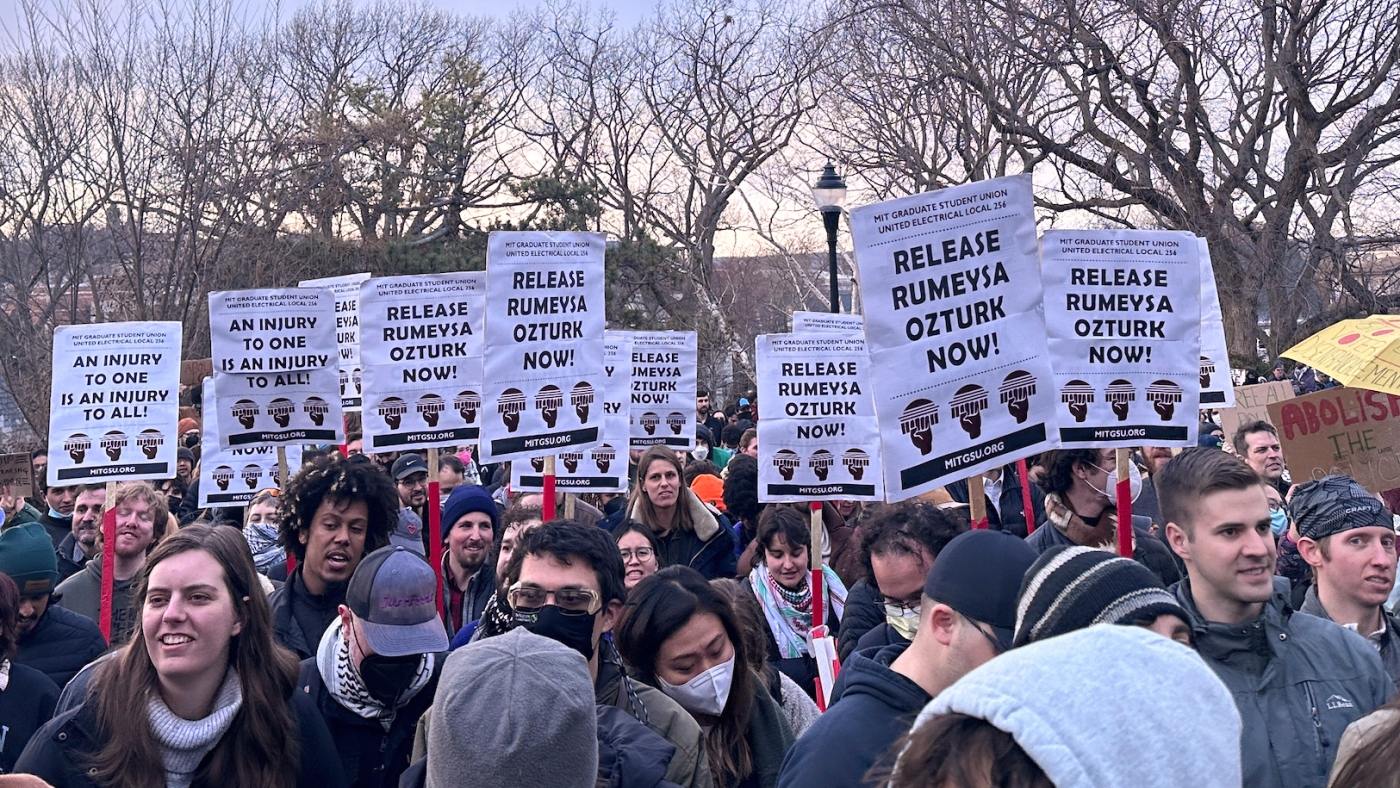The Intricate Tale of Rümeysa Öztürk
The narrative of Rümeysa Öztürk, a doctoral student at Tufts University, is a compelling tapestry that weaves together immigration policies, free speech, and the labyrinthine nature of the legal system. Her detention and subsequent release by federal judges shine a light on the complexities and controversies that surround immigration enforcement, particularly under the Trump administration.
The Arrest and Detention
In March 2025, Rümeysa Öztürk, a Turkish national pursuing a Ph.D. in child development, was suddenly detained by federal immigration officers. The arrest, conducted by six masked agents from the U.S. Department of Homeland Security (DHS), took place near her home in Somerville, Massachusetts. Öztürk was then transferred through various U.S. Immigration and Customs Enforcement (ICE) detention centers, ultimately ending up in Louisiana.
The circumstances of her arrest were highly contentious. Öztürk’s detention was reportedly linked to an op-ed she co-authored in The Tufts Daily, the student newspaper. The op-ed, which advocated for pro-Palestinian views, set off a chain of events that culminated in the revocation of her F-1 student visa by Secretary of State Marco Rubio. This action paved the way for her deportation, signaling a significant escalation in the Trump administration’s stringent immigration policies.
A Legal Odyssey
Öztürk’s case swiftly became a battleground for legal disputes and judicial interventions. Initially, a federal judge in Vermont ordered her immediate release, expressing concerns about the potential chilling effect on free speech. This ruling was a substantial blow to the Trump administration’s efforts to deport her. However, the legal saga was far from over.
A federal appeals court in New York later mandated that the Trump administration transfer Öztürk back to Vermont from Louisiana. This decision followed a series of hearings and legal arguments, with Öztürk’s lawyers contending that her detention infringed upon her constitutional rights, including free speech and due process. The appeals court’s ruling underscored the legal intricacies and the ongoing debate over the balance between immigration enforcement and individual rights.
The Free Speech Dilemma
One of the most striking aspects of Öztürk’s case is the intersection of immigration policy and free speech. Judge William K. Sessions III, who presided over the case, emphasized that Öztürk’s detention could have a chilling effect on the speech of millions of noncitizens. This perspective adds a layer of constitutional significance to the case, raising questions about the limits of government power in enforcing immigration laws and the protection of free speech rights for noncitizens.
Öztürk’s detention was widely viewed as a retaliatory measure for her political expression, a grave concern in a democratic society. The op-ed she co-authored was a form of political advocacy, and her subsequent arrest raised alarms about potential censorship and suppression of dissenting voices. The legal battles surrounding her case highlighted the importance of protecting free speech, even for those who are not U.S. citizens.
The Broader Implications
The case of Rümeysa Öztürk also illuminates the broader implications of immigration policy under the Trump administration. The administration’s aggressive stance on immigration, marked by strict enforcement and deportation efforts, has faced significant legal and public scrutiny. Öztürk’s case is just one example of the complex and often contentious nature of these policies.
The legal battles and judicial interventions in Öztürk’s case highlight the challenges faced by noncitizens in the U.S. immigration system. The revocation of her student visa and subsequent detention raised questions about the fairness and transparency of immigration enforcement. The case also underscored the need for a balanced approach that respects individual rights while enforcing immigration laws.
The Chilling Effect on Dissent
The potential chilling effect on free speech is a critical aspect of Öztürk’s case. The detention of a student for expressing political views sends a stark message to noncitizens and citizens alike about the risks of speaking out. This chilling effect can stifle open dialogue and debate, which are essential components of a healthy democracy. The case serves as a cautionary tale about the dangers of using immigration enforcement as a tool to suppress dissent.
The Need for Judicial Oversight
The legal battles in Öztürk’s case underscore the importance of judicial oversight in immigration enforcement. Judges play a crucial role in ensuring that the rights of individuals are protected, even in the face of aggressive immigration policies. The decisions in Öztürk’s case demonstrate the judiciary’s willingness to intervene when necessary to uphold constitutional principles.
Conclusion: A Call for Balanced Immigration Policy
The story of Rümeysa Öztürk is a poignant reminder of the complexities and controversies surrounding immigration policy and free speech. Her detention and subsequent release by federal judges underscore the need for a balanced approach that respects individual rights while enforcing immigration laws. The case highlights the importance of protecting free speech, even for noncitizens, and the potential chilling effect of retaliatory measures. As the legal battles continue, Öztürk’s case serves as a powerful example of the ongoing debate over immigration policy and the protection of constitutional rights. It is a call to action for policymakers, legal professionals, and the public to advocate for a more just and equitable immigration system that values both security and individual liberties.

